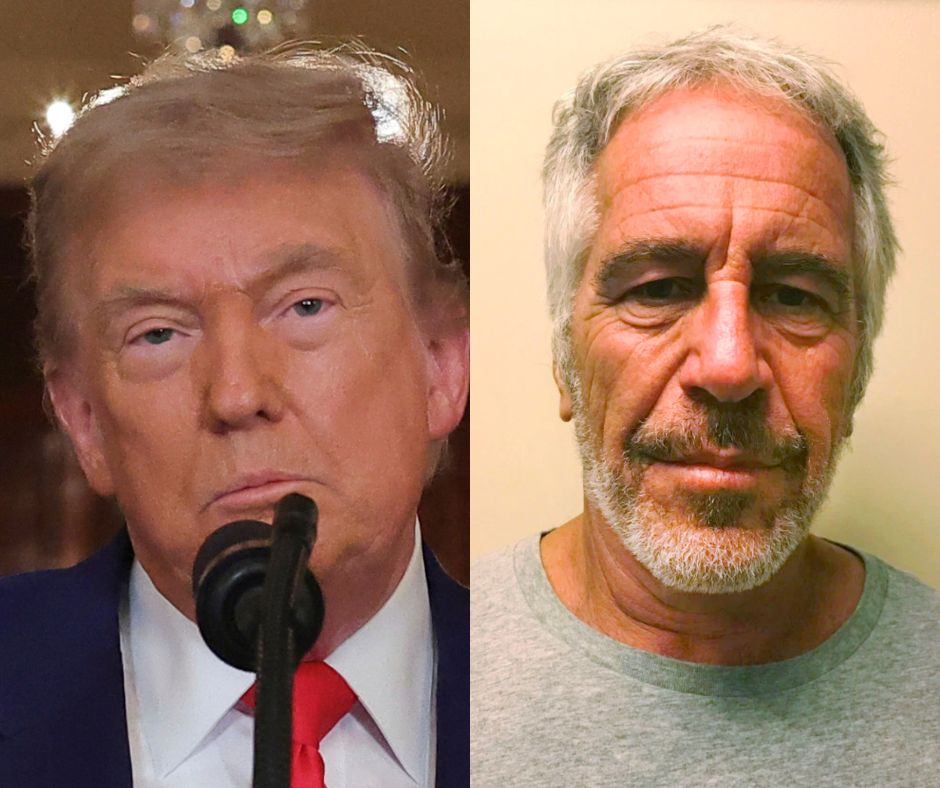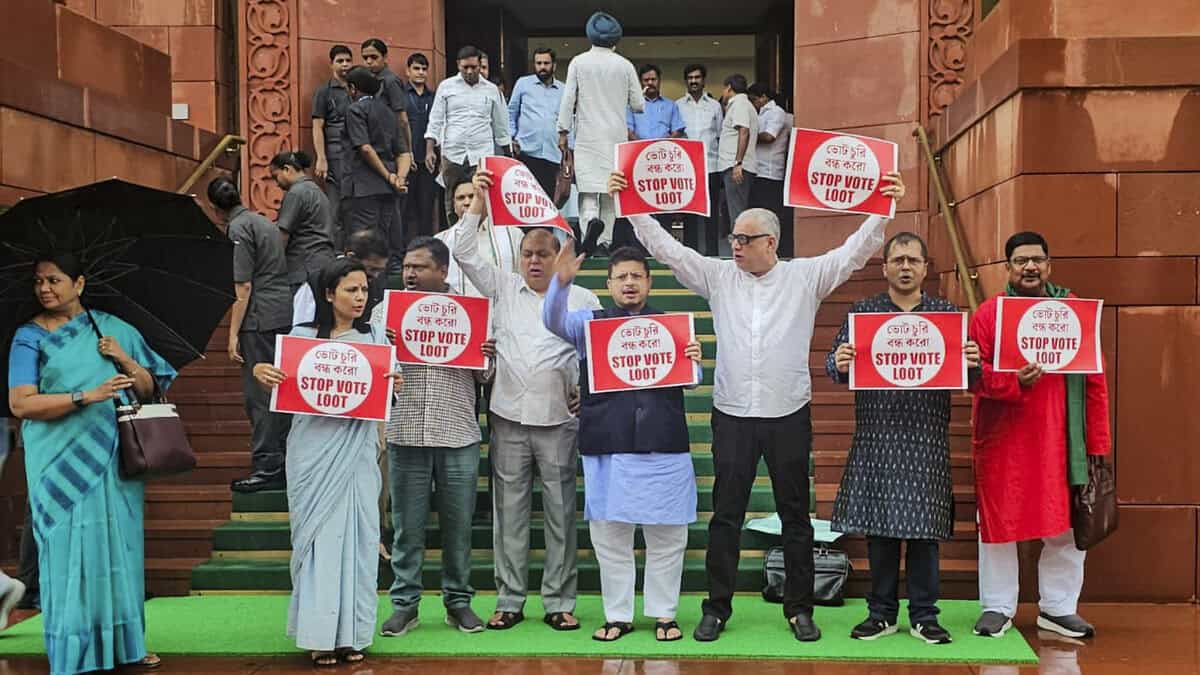On Wednesday, 30th July, the United States Department of State announced sanctions on 20 entities for engaging in trade with Iran’s petroleum and petrochemical sector. Among those sanctioned are six Indian companies accused of importing large volumes of Iranian-origin petrochemicals. The US claims these transactions violate its domestic law, Executive Order 13846, which prohibits dealings with Iran’s oil sector as part of its maximum pressure campaign on Tehran.
The American government stated that the revenue generated from such trades allegedly helps Iran fund terrorism, fuel conflict in the Middle East, and oppress its people. According to a State Department spokesperson, the purpose of these sanctions is “not to punish, but to bring about a positive behaviour change” from the Iranian regime. But as the sanctions list grows, the deeper question is not just about oil or Iran. It’s about sovereignty, energy security, and increasing double standards in international geopolitics.
The Indian companies sanctioned
Among the six Indian companies targeted, Alchemical Solutions Private Limited tops the list, accused of importing petrochemical products worth over $84 million from Iran in 2024.
Global Industrial Chemicals Limited followed suit with over $51 million in imports, while Jupiter Dye Chem Private Limited reportedly purchased toluene and other Iranian-origin products worth $49 million. Ramniklal S Gosalia And Company, Persistent Petrochem, and Kanchan Polymers were also sanctioned, with varying degrees of trade involvement.
These firms have been designated under section 3(a)(iii) of Executive Order 13846, which penalises those who “knowingly engage” in significant transactions related to Iran’s petrochemical products.
As a result, all property and financial interests of these companies under US jurisdiction are now frozen. In practical terms, these firms cannot do business involving US dollars, banking systems, or partnerships with American entities. Any transaction by US persons with these companies is now forbidden unless specifically authorised.
Implications of sanctions
“All transactions by US persons or within (or transiting) the United States that involve any property or interests in property of designated or otherwise blocked persons are prohibited unless authorised by a general or specific license issued by OFAC or exempt. These prohibitions include the making of any contribution or provision of funds, goods, or services by, to, or for the benefit of any blocked person and the receipt of any contribution or provision of funds, goods, or services from any such person,” the Department said.
The US Department of State clarified that the goal of sanctions is “not to punish, but to bring about a positive behaviour change.”
For countries like India, these sanctions create a geopolitical dilemma. On one hand, the US is a strategic partner. On the other hand, India has longstanding energy and cultural ties with Iran. With domestic oil needs soaring and inflation-sensitive economies to manage, it is not easy to stop buying affordable oil simply because Washington says so.
US sanctions Indian firms for Iranian oil, but what about India’s needs?
India meets over 85% of its crude oil requirements through imports. It has not enough domestic reserves which can fulfil the energy requirements of 140 crore individuals. Therefore, the government is looking for cheap oil wherever it can be had, irrespective of geopolitics. Iran, a traditional friend of India, has been an important energy partner in the past. The Chabahar Port project, jointly developed by India and Iran, is a strategic trade connection that the US itself previously exempted from sanctions.
So, when the US sanctions Indian companies for buying Iranian oil, it’s not just penalising a few traders, it’s attempting to control India’s sovereign right to choose its energy sources. This is not just about rules; it’s about coercion.
India has stated categorically many a time: we will purchase oil from whoever sells it at the best price. Ever since the Russia-Ukraine war broke out in 2022, India began importing more oil from Russia at lower prices. The Western world, particularly the US and EU, criticised this action, accusing India of fueling the Russian war machine. But India has had to insist all along that it purchases oil to power the Indian economy, not for wars.
Western sanctions and their hypocrisy: The Nayara case
This brings us to the latest example of Western double standards, the EU’s sanctions on Nayara Energy. On 18th July, 2025, the European Union imposed its 18th round of sanctions on Russia. Among the new measures was a restriction on Nayara Energy’s Vadinar refinery in Gujarat. The EU alleged the firm, which has Russian company Rosneft as a 49% stakeholder, was refining and shipping Russian-origin crude oil.
Alongside this, the EU also sanctioned India’s shipping registry, meaning Indian-flagged vessels could now be targeted if they were found carrying Russian oil. This has been termed unfair.
The EU has not completely banned Russian oil; it has simply placed a price cap 15% below market prices, which still means that Russia can make profits. In addition, the EU itself still imports Russian energy, such as liquefied natural gas (LNG), in massive amounts. Spain and Belgium are among the largest importers, while Germany now buys Russian LNG through its ports after stopping direct pipeline imports.
India under pressure while Europe buys more
Here lies the contradiction: Europe imports Russian gas and oil, but sanctions India for refining or transporting it. India, which paid only around $50 billion for Russian oil in 2022, faces moral lectures and trade restrictions, while the EU itself paid over $120 billion to Russia that same year for fossil fuels.
Even the United States, while leading the sanctions campaign, continues to import select Russian commodities, especially uranium for its nuclear power sector. While Western leaders deliver speeches about international rules-based orders, they quietly make exceptions for themselves and apply the harshest restrictions on countries like India that are just looking out for their citizens.
India pushes back: Sovereignty comes first
India has not taken these lessons lightly. “Securing the energy needs of our people is understandably an overriding priority for us. In this endeavour, we are guided by what is there on offer in the markets, as also by the prevailing global circumstances,” MEA spokesperson Randhir Jaiswal said.
Recently, the Ministry of External Affairs released a stern warning against double standards and said India is keeping a close eye on the U.S. plan to tax nations that continue to purchase Russian oil with a 500% tariff.
Union Petroleum Minister Hardeep Puri also stated that India would deal with sanctions when they are passed, pointing out that India has diversified its supply sources, buying oil from about 40 countries now, as opposed to 27 in the past.
Strategic autonomy in the Energy sector
India’s growing reliance on discounted Russian oil is not about ideology; it’s about survival. Since the Ukraine war began, Russia has become one of India’s top oil suppliers, offering massive discounts. Indian refineries have adjusted their operations to process this grade of crude and supply both domestic and international markets.
But the bigger issue is not just energy. It’s about strategic autonomy. India’s defence systems are still heavily reliant on Russian equipment, up to 70% by some estimates. And while countries like Turkey, a NATO member, were sanctioned lightly for purchasing the S-400 missile system from Russia, India has been subjected to greater scrutiny despite having far more pressing regional security concerns.
Sanctions: A tool for global control?
One major question: are sanctions really about punishing wrongdoing, or are they instruments of global control? An American bill in Congress is now pushing for a 500% tariff on countries that continue to buy Russian oil. India isn’t named, but it’s clearly in the crosshairs. NATO officials, too, have hinted that countries like India and China must either pressure Russia or face economic consequences.
India has pushed back hard. When visiting Washington recently, Jaishankar informed U.S. officials that the energy security of India cannot be sacrificed. The country’s concerns have been expressed forcefully to those initiating the sanctions, he said.
Not an oil Issue, but a fairness issue
At the end of the day, this isn’t just about Iranian oil or Russian energy. It’s about fairness. If Spain and Germany can import Russian LNG, why can’t India? If the US can continue buying uranium from Russia, why can’t India secure cheaper crude?
India does not support war. It has donated humanitarian aid to Ukraine, and it has addressed both President Zelensky and President Putin, calling for peace. But that doesn’t imply it won’t continue doing what is best for its citizens.
This is not an issue of oil. It’s a matter of principle, equity, and sovereignty. If the West wishes to dominate the world, it first needs to set an example. It must stop preaching rules that it does not follow. Only then will the world believe in a truly fair and balanced international order.

















































